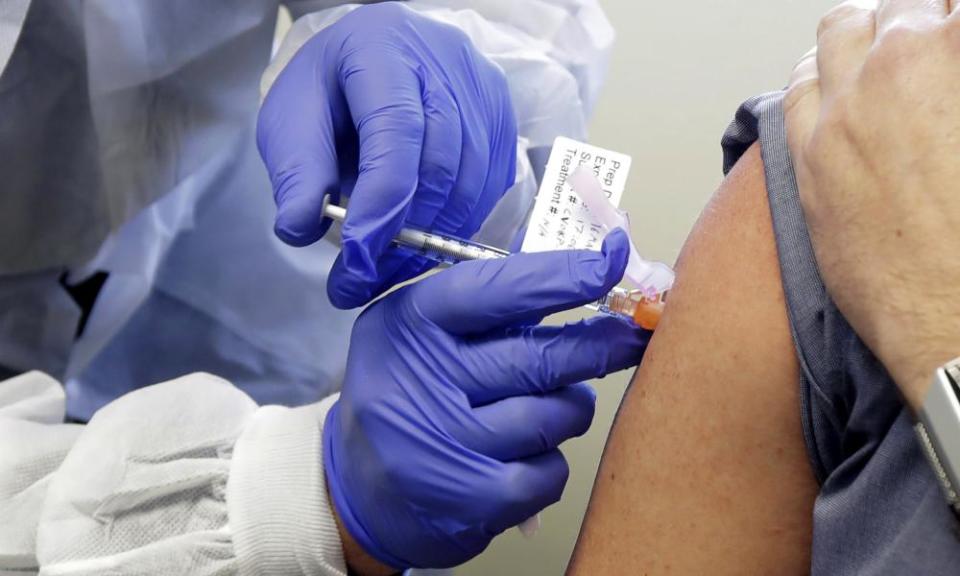Extremely vulnerable in UK given high priority for coronavirus vaccine

People at very high risk of contracting coronavirus due to health problems, who were made to shield during the pandemic, have been given the same priority as the over-70s to receive a Covid-19 vaccine.
People aged 18 or older deemed “clinically extremely vulnerable” are in the same priority group as those aged 70 and over, according to the provisional vaccine priority list published by Public Health England.
Related: Hospitals in England told to prepare for Covid vaccine rollout in 10 days' time
It means people with conditions such as blood, bone or lung cancer, chronic kidney disease and Down’s syndrome have been placed in priority group four of nine.
The updated list, which is subject to the Medicines and Healthcare products Regulatory Agency (MHRA) approving a vaccine supply, also lists the conditions that fall in priority group six for at-risk adults aged 18 to 65.
These include people diagnosed with diabetes, chronic heart disease and morbid obesity.
The interim guidance, advised by the Joint Committee on Vaccination and Immunisation (JCVI), says the order of priority should be: older adults in care homes and care home workers; those 80 and over and health and social care workers; those 75 years and over; those 70 and over and clinically extremely vulnerable individuals, excluding pregnant women and those under 18.
All those 65 and over, adults aged 18 to 65 in an at-risk group, those aged 60 and over, those 55 and over and people aged 50 and over make up the remainder of the list.
Gemma Peters, chief executive of charity Blood Cancer UK, said: “This is extremely good news. Putting people with blood cancer at the same priority level as those aged over 70 better reflects the fact that they are especially vulnerable to the coronavirus.”
Peters added: “Any vaccine might not work as well in people with blood cancer, so vaccinating the people around them is a vital part of protecting them. We are very grateful to the government for having listened to the voices of people with blood cancer and other health conditions on this.
“It is also important to remember that this is not definitely the final priority list. No vaccines have been approved yet, and we’re waiting for confirmation that any vaccine will be safe and effective for people with blood cancer.”
The Pfizer/BioNTech vaccine was the first to submit its data for review by the MHRA last week.
Related: Covid vaccine tracker: when will a coronavirus vaccine be ready?
The health secretary, Matt Hancock, said there will be 10m doses available in the UK by the end of the year out of the 40m he has ordered.
Meanwhile, hospitals have been told to prepare for the rollout of a coronavirus jab in as little as 10 days, with NHS workers expected to be at the front of the queue, the Guardian has learned. Issues with transporting and storing the vaccine, which must be kept at low temperatures, mean it cannot easily be transported by healthcare staff such as GPs to care homes and older people’s private residences to give them the vaccine first.

 Yahoo Finance
Yahoo Finance 